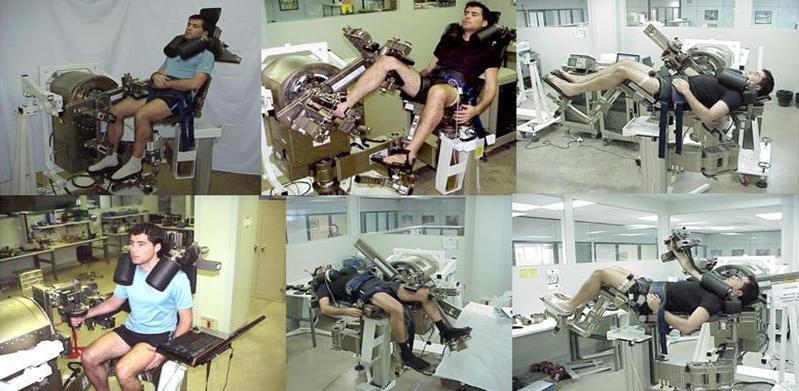
A new study from The University of Texas Medical Branch at Galveston has further documented how muscles are affected by reduced gravity conditions during space flight missions and uncovered how exercise and hormone treatments can be tailored to minimize muscle loss for individual space travelers. The findings are available in PLOS One.
NASA has recently announced that it will allow private citizens to visit the International Space Station. The growing number of space travelers underscores the need to understand the impact of reduced gravity on the human body.
“The study has given us the ability to identify biomarkers that predict how susceptible each individual is to muscle function decline and how effectively different exercise and hormone treatments can combat the atrophy,” said senior author Randall Urban, UTMB chief research officer and professor in the department of internal medicine.
Senior author Melinda Sheffield-Moore, professor in the Texas T&M department of health and kinesiology and UTMB department of internal medicine, said, “This new ability may allow scientists to personalize space medicine by designing specific exercise and/or hormone intervention programs for each astronaut on Earth before they embark on a long-term mission to space.”
Space flight-related losses in muscle mass and strength are a key concern for long space exploration missions. The muscle loss during space flight largely stems from fact that weight bearing muscles don’t work as hard in reduced gravity conditions. While in space, people exercise in an effort to counter this muscle loss, but it cannot completely prevent muscle atrophy. So, researchers are searching for additional interventions that compliment inflight exercise.
The effects of long-term muscle inactivity can be investigated with extended bed rest. In the study, 24 healthy male participants were placed on bed rest for 70 days. During the bed rest period, some of the men followed an exercise regimen and blindly received either testosterone supplements or a placebo while a control group remained in the bed without any exercise training or supplements. Throughout the study, the researchers collected muscle biopsies to analyze the proteins within the muscle tissue.
The researchers uncovered several changes to the men’s muscle proteins during the bed rest period that were blunted or reversed with exercise, which appeared to drive a healthier protein organization within the muscle fibers. The testosterone supplements prompted further protein changes that promoted muscle growth beyond that of exercise alone.
“The unique insights we’ve gained on muscle proteins during extended bed rest could someday be applied to predict changes to muscle mass/strength in various situations and then develop a personalized program of exercises and hormonal countermeasures,” said senior author E. Lichar Dillon, UTMB assistant professor in the department of internal medicine.


